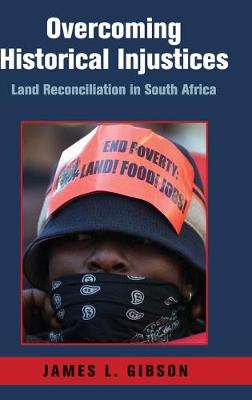Cambridge Studies in Public Opinion and Political Psychology
2 total works
Overcoming Historical Injustices is the last entry in Gibson's 'overcoming trilogy' on South Africa's transformation from apartheid to democracy. Focusing on the issue of historical land dispossessions - the taking of African land under colonialism and apartheid - this book investigates the judgements South Africans make about the fairness of their country's past. Should, for instance, land seized under apartheid be returned today to its rightful owner? Gibson's research zeroes in on group identities and attachments as the thread that connects people to the past. Even when individuals have experienced no direct harm in the past, they care about the fairness of the treatment of their group to the extent that they identify with that group. Gibson's analysis shows that land issues in contemporary South Africa are salient, volatile, and enshrouded in symbols and, most important, that interracial differences in understandings of the past and preferences for the future are profound.
Overcoming Intolerance in South Africa
by James L. Gibson and Amanda Gouws
Published 7 November 2005
Overcoming Intolerance in South Africa investigates the degree to which the political culture of South Africa - the beliefs, values, and attitudes toward politics held by ordinary people - impedes or promotes the consolidation of democratic reform. One set of values is of particular concern in this study - political tolerance. The authors contend that political tolerance is a crucial element of democratic political cultures in general, but that in the South African case, tolerance is perhaps more important than any other democratic value. Since South Africa is one of the most polyglot countries in the world, the only viable strategy for survival is tolerance toward the political views of others. The overwhelming emphasis throughout this book is on finding ways to enhance the willingness of South Africans to 'put up with' their political enemies, to allow open and widespread political competition, and to coexist in their diversity.

